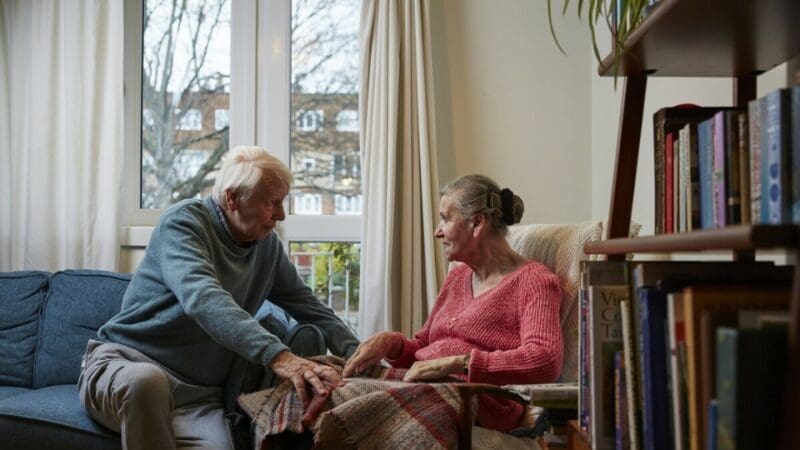
Christmas activities for people living with dementia
Christmas activity ideas for a person with dementia for a fun and engaging time for all the family
Admiral Nurse Dave shares the benefits of gardening for people living with dementia and his tips for how you can get started.
Maintaining physical activity, cognitive function and social interaction, all helps someone who has dementia to remain stimulated, feel valued and helpful.
Being involved in gardening can really contribute to a person’s wellbeing. Gardening is on-going and ever-changing., anyone who has a garden will recognise that there is always something to do! Even if you have no garden, and have only limited space (perhaps for a few pots on windowsills) this is an activity that can give great pleasure. It can distract, engage, add to routines and be a focus for physical activity.

Gardening can provide a fantastic opportunity for stimulation of all the senses. There are the sensations of touch – soil, flowers, bark (but mind the thorns!), and perhaps the feel of a gentle wind, of sun or rain. There is visual stimulation – an amazing range of colour and shapes, sunlight, as well as the wildlife a garden can offer. There are the smells of flowers and vegetables, of herbs or of a freshly mown lawn. And there are the sounds – birdsong, insects, and rustle of wind in trees; and of course, there is taste – eating fruit, vegetables, and even edible flowers such as nasturtiums or marigolds.
It may be that someone’s memory difficulties and cognitive disability can get in the way of a whole sense of what is happening in the garden However, much activity for someone who has dementia is in the ‘here and now’, and the enjoyment of sharing a current task. This can be so rewarding in a garden, where the calmness of the surroundings can also lead to developing and sustaining relationships, not only through doing things together but also through the talk that always takes place.
There are many physical benefits – including dexterity skills and broader exercise through potting, planting, digging, sweeping, weeding and pruning – which can lead to reduced agitation and improved sleep.
There are cognitive benefits too – in terms of getting the person to help plan the activities, and perhaps to choose seeds and consider how flowers and vegetables are organised in the garden.
There are also huge benefits socially. For example, a caller on the Admiral Nurse Dementia Helpline said recently that she and her mother had never had so many conversations with others on their street as they did when they cut her hedge for an hour last summer, with Mum sitting on a chair, directing, while the daughter did the hard work!
There are many gardening activities which could involve the person living with dementia, whatever their disabilities. If they are physically able, they may be able to be prompted to do the tasks themselves. Otherwise, helping, or even just watching and feeling involved can be enough.
Tasks are there to do all year round, both indoors and outdoors.
The depths of winter can be a quiet time for gardeners, but there are still lots of tasks you can do together, such as cleaning tools or maintaining bird tables and feeders for small garden birds.
In February is a time to start planting seeds indoors or in a greenhouse and you can start to see the winter bulbs coming through – snowdrops first, then crocuses and daffodils showing their heads. A sure sign Spring is on the way.
Anne, a lady of 92, had kept a garden at home, but sadly had to move to a nursing home as her mobility and cognition reduced. At first she became quite distressed and often called out, as despite the efforts of staff to keep her engaged and stimulated, she spent so many hours alone in the chair next to her bed with just the TV for company.
Fortunately the home found out from her family about her love of her garden and, when a room became available facing onto the garden, Anne was able to move there, where she had a French window that opened onto a patio and a flower bed beyond. Her daughter set up a variety of pots in her view.
Even though she was unable to do much of this herself, Anne could give directions to her daughters, smell and taste the flowers and produce, and, with a bird table set up in her view, could watch the constant stream of birds and even squirrels, come and feed. Her agitation and feelings of isolation were almost immediately reduced, and the new found pleasures enhanced her relationships with staff and other residents.

Christmas activity ideas for a person with dementia for a fun and engaging time for all the family

Consultant Admiral Nurse for Frailty, Kerry Lyons, answers your questions about delirium, falls and incontinence.

Admiral Nurse Tracy Browne shares tips on how to support someone living with dementia during a stay in hospital.